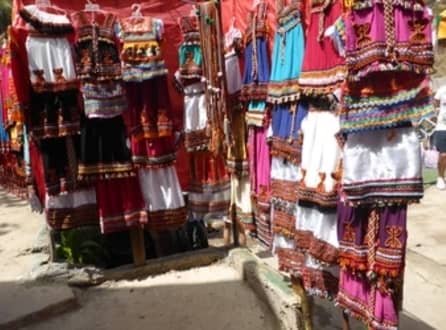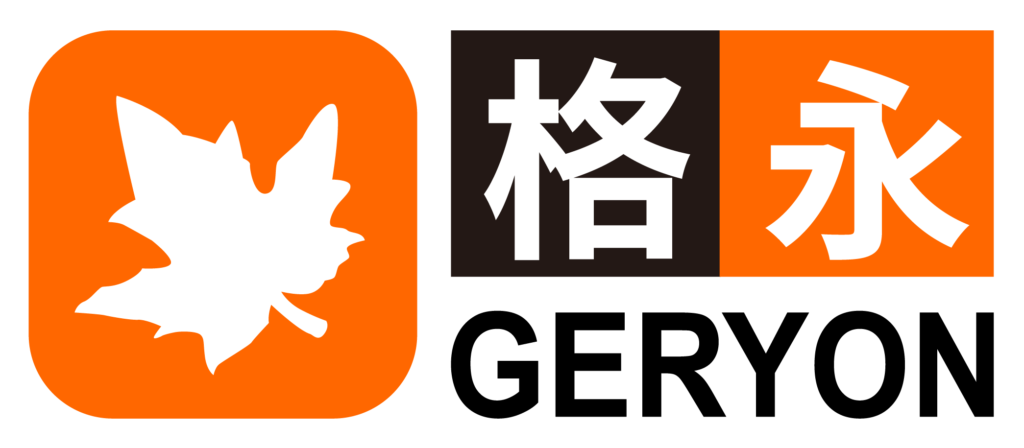The demand for Algeria used clothes continues to rise, as consumers increasingly turn to sustainable alternatives to fast fashion. For B2B importers, this presents a wealth of opportunities to meet the needs of a growing middle class while contributing to a more environmentally conscious industry. In this article, we’ll examine the key trends impacting the Algeria used clothes market and identify actionable strategies for importers looking to capitalize on these trends in 2024.
Table of Contents
1. Introduction to the Algeria Used Clothes Market
The Algeria used clothes market has been growing rapidly in recent years, driven by a combination of economic factors and changing consumer behavior. With an increasing demand for affordable clothing options, Algeria has become a key market for the import of secondhand apparel. As consumers, especially in urban areas, turn to used clothing for cost-effective and stylish alternatives, there is a clear opportunity for B2B importers to capitalize on this trend. In 2024, Algeria continues to show strong growth potential in the secondhand clothing sector, making it an attractive destination for businesses looking to enter or expand in the North African market.
Overview of the Growing Demand for Secondhand Clothing in Algeria
In Algeria, the demand for used clothes is steadily increasing, particularly among younger consumers. This demographic, which makes up a significant portion of the population, is increasingly seeking affordable fashion solutions. With economic pressures such as high unemployment and inflation, many Algerians are turning to secondhand clothing as a cost-effective alternative. In addition, the desire for global fashion trends at more affordable prices has made Algeria used clothes a popular choice for many consumers looking for quality apparel without the high costs of new items.
Key Factors Driving the Market’s Expansion
The growing popularity of Algeria used clothes can be attributed to several key factors. First, economic challenges such as inflation and high unemployment rates have made secondhand clothing a more attractive option for many Algerians. Second, sustainability concerns are becoming more prominent, with many consumers opting for used clothing as an eco-friendly alternative to fast fashion. Additionally, Algeria’s reliance on imported goods, including secondhand apparel, ensures that the Algeria used clothes market will continue to thrive in the coming years, offering significant opportunities for importers
2. Market Trends in Algeria’s Used Clothes Industry
The Algeria used clothes market is shaped by several important trends that reflect broader changes in consumer behavior and the global fashion industry. These trends not only highlight the increasing demand for secondhand clothing but also provide valuable insights for B2B importers looking to succeed in this market. In 2024, these trends are expected to continue influencing the market dynamics in Algeria.
Shifting Consumer Preferences Towards Sustainable Fashion
Sustainability is becoming a key driver of demand for Algeria used clothes. With growing environmental awareness, many consumers are shifting away from fast fashion in favor of more sustainable alternatives. Secondhand clothing offers a way to reduce waste and minimize environmental impact. The increasing popularity of thrift shops and online platforms for used goods in Algeria reflects this shift. Younger Algerians, in particular, are embracing the idea of purchasing used clothing not only to save money but also to contribute to more sustainable fashion practices.
The Role of Price Sensitivity in Consumer Buying Decisions
Price sensitivity is a major factor driving the popularity of Algeria used clothes. Due to economic conditions such as inflation and high unemployment, many Algerians are looking for affordable alternatives to expensive new clothing. Secondhand apparel offers a solution to this challenge, providing high-quality fashion at a fraction of the cost of new items. As consumers become more cost-conscious, the demand for used clothing is expected to increase, making Algeria used clothes a smart choice for many buyers.
Evolving Fashion Trends in Algeria and Their Impact on Used Clothing
Fashion trends in Algeria are evolving, and the demand for Algeria used clothes is influenced by global fashion movements. As Algerian consumers seek to stay up-to-date with international styles, used clothing has become an attractive way to access trendy items at a lower price. The rise of vintage and retro styles, in particular, has contributed to the growing appeal of used clothes. Importers who are able to provide fashionable and high-quality secondhand clothing that aligns with these trends will be well-positioned to succeed in Algeria’s competitive market.
3. Opportunities for B2B Importers in Algeria
Algeria’s Algeria used clothes market presents numerous opportunities for B2B importers looking to expand their reach in North Africa. With increasing demand for secondhand clothing and a growing middle class, Algeria is emerging as a key destination for used clothing imports. In this section, we’ll examine the specific opportunities available to businesses in 2024, from tapping into the growing retail sector to understanding the needs of local consumers.
Why Algeria is a Lucrative Market for Used Clothes Importers
Algeria’s market for Algeria used clothes is highly attractive for international importers due to its growing population, rising middle class, and increasing consumer interest in affordable and sustainable fashion. The country has limited domestic production of secondhand clothing, meaning it relies heavily on imports to meet demand. This creates a steady market for foreign suppliers of used clothes. Additionally, Algeria’s strategic location in North Africa makes it a gateway to the broader African market, further enhancing its appeal to B2B importers.
Key Sectors Driving Demand for Secondhand Apparel
There are several key sectors in Algeria driving the demand for Algeria used clothes. The retail sector, particularly in urban centers like Algiers, has seen a rise in the number of secondhand clothing stores catering to the growing demand for affordable fashion. Additionally, the rise of online retail platforms in Algeria has opened new opportunities for B2B importers to supply secondhand clothing directly to consumers. Moreover, the expansion of the middle class is fueling demand, as families and individuals seek ways to dress stylishly without breaking the bank. Importers who can tap into these sectors will find numerous opportunities to grow their businesses.
How Importers Can Tap into Algeria’s Growing Middle Class
The expanding middle class in Algeria is increasingly looking for quality, affordable fashion options, and Algeria used clothes are an attractive solution. Importers can target this demographic by offering a wide variety of secondhand clothing that caters to different tastes and preferences. Since the middle class in Algeria is diverse, focusing on different categories such as casual wear, workwear, and high-end fashion can help importers capture a broader market share. Additionally, offering competitive pricing and ensuring that the imported goods are of high quality will help build consumer trust and loyalty.
4. Challenges for Importers in the Algeria Used Clothes Market
While the Algeria used clothes market offers significant opportunities, there are also several challenges that B2B importers need to navigate. From regulatory barriers to logistics and competition, understanding these challenges is crucial for importers seeking long-term success in Algeria. This section will discuss the key obstacles in the market and how businesses can overcome them.
Regulatory Considerations and Import Restrictions
Importing Algeria used clothes to Algeria comes with several regulatory hurdles. The Algerian government imposes strict regulations on the importation of secondhand goods to protect local industries and consumers. These regulations require that all imported used clothing meets specific health and safety standards. Importers must ensure that the clothing is free from contaminants and is of a high standard before it can be sold in Algeria. Failure to comply with these regulations can result in delays, fines, or the rejection of shipments. It’s important for importers to familiarize themselves with these regulations and work with experienced customs brokers to ensure smooth transactions.
Logistics and Supply Chain Challenges
The logistics of importing Algeria used clothes to Algeria can be complex, especially given the country’s limited infrastructure and occasional delays at ports. Importers must work closely with reliable shipping companies and local distributors to ensure that goods are delivered on time and at competitive costs. Effective supply chain management is essential for minimizing costs and avoiding delays. Importers should also consider the most efficient routes and transportation methods to ensure that their goods reach the market quickly and safely.
Navigating the Competitive Landscape
The market for Algeria used clothes in Algeria is becoming increasingly competitive, with both local and international suppliers vying for market share. To stand out, importers must differentiate themselves by offering high-quality products, competitive pricing, and exceptional customer service. Building strong relationships with local distributors and retailers is key to gaining a competitive edge. Importers must also stay on top of market trends, continuously sourcing products that align with local consumer preferences and demands.
5. Strategies for Success: How to Capitalize on Opportunities in 2024
To succeed in the Algeria used clothes market, importers must adopt effective strategies that align with both local market dynamics and global trends. This section provides practical advice on how businesses can capitalize on opportunities in the Algerian market in 2024.
Tips for Building Strong Relationships with Algerian Importers
Building strong relationships with local importers and distributors is crucial to success in Algeria’s Algeria used clothes market. Importers should invest time in understanding the needs of their local partners and customers. Attending trade shows, networking events, and building trust with key stakeholders will help establish long-term business relationships. Successful partnerships will enable foreign suppliers to better navigate the complexities of the market and ensure a consistent supply of high-quality used clothing.
Understanding Market Needs and Consumer Preferences
To succeed in the Algeria used clothes market, it’s essential for importers to understand the specific needs of Algerian consumers. Market research and consumer surveys can provide valuable insights into the types of secondhand clothing that are most in demand. By understanding local tastes and preferences, importers can tailor their product offerings to meet the needs of Algerian consumers. Whether it’s focusing on popular brands, vintage styles, or casual wear, aligning the product selection with consumer demand will help importers build a loyal customer base.
Best Practices for Importing Used Clothes to Algeria in 2024
Successful importers of Algeria used clothes to Algeria in 2024 must be aware of best practices, including maintaining high product quality, adhering to import regulations, and ensuring timely deliveries. Collaborating with reliable suppliers, ensuring proper packaging, and staying informed about changes in the local market will help businesses remain competitive and avoid common pitfalls. Importers should also focus on building strong relationships with local retailers and wholesalers, who can help distribute used clothes throughout the country.

6. Conclusion
The Algeria used clothes market presents an exciting opportunity for importers looking to tap into the growing demand for secondhand apparel in North Africa. With rising consumer interest in affordable, sustainable fashion and a favorable market environment, businesses that strategically enter this market in 2024 can benefit from significant growth. However, it is crucial for importers to understand the local market trends, navigate regulatory challenges, and offer high-quality products that meet the needs of Algerian consumers. By doing so, they can establish a successful foothold in Algeria’s thriving secondhand clothing sector.








